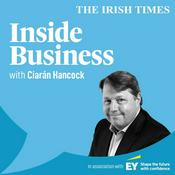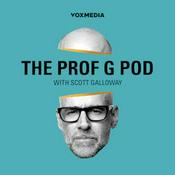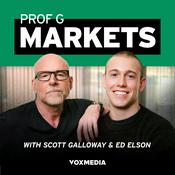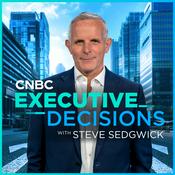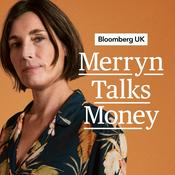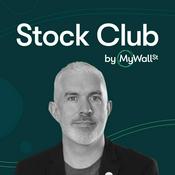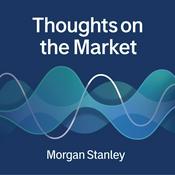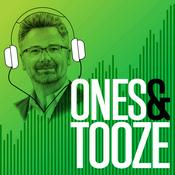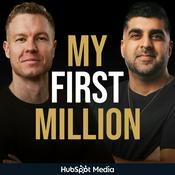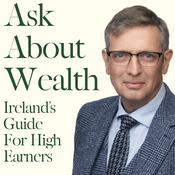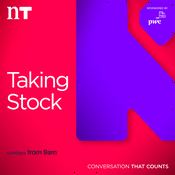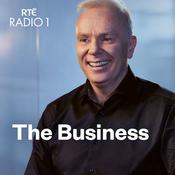The Urban Report: From FORESIGHT Climate & Energy, The Urban Report is a podcast that takes a close look at how cities around the world are transitioning to net-zero.

29 episodes

What happens when cities run out of space?
06/10/2025 | 53 mins.
Download our award-winning app and enjoy access to all exclusive features. Click here to access on Apple or Android. “Space is becoming a sparse resource in cities around the world, and to some extent, also in Copenhagen. And this obviously challenges us in the way that we develop the city.”Welcome to The Urban Question, a special series of the Urban Report podcast from FORESIGHT Climate & Energy in association with Bloxhub, the Nordic hub for sustainable urbanisation and the WRLDCTY forum. In each episode, the team at FORESIGHT will try to answer a single pressing question or dilemma at the heart of regenerative planning efforts. Using Bloxhub’s home of Copenhagen as our living laboratory, The Urban Question will also look at how other cities are adapting to the demands of the 21st-century citizen.For this third and final episode of the series, FORESIGHT’s Sean Carroll explores what happens when cities run out of space. With evermore competition for housing and land for new builds at a premium, how do we accommodate everyone wanting to make a home in a city?Sean is joined by: Lars Jensen, the Chief Architect for the City of Copenhagen Steven Cornwell, Global Director at ERA, a consultancy that uses data and analytics to unlock the potential of neighbourhoods, towns, and cities. Are there new ways we can maximise the space in cities? Or should we be looking in other places to live? Can jobs be transferred to different parts of your country? Let us know in the comments below or over on LinkedIn, where you’ll find a community of like-minded individuals working to create a decarbonised economy. We have come to the end of our series exploring the Urban Question with Bloxhub and WRLDCTY. We hope you enjoyed it. If you could like, rate, comment, and share the series with your networks, it will go a long way in helping us continue conversations and projects like these in the future. Thanks for listening. “If you only go for consensus, you're only going to get a short-range outcome; big, long-range thinking is hard. It's not popular.”Download our award-winning app and enjoy access to all exclusive features. Click here to access on Apple or Android. If you have any thoughts or questions about anything that has been discussed in this week’s episode, you can reach Sean at his X account: Sean Carroll Follow us on X at @Foresight_CE or email us at: [email protected] can also find FORESIGHT Climate & Energy on LinkedIn. Hosted on Acast. See acast.com/privacy for more information.

Can cities grow without harming the planet?
03/10/2025 | 42 mins.
Download our award-winning app and enjoy access to all exclusive features. Click here to access on Apple or Android. "We have to combine a low-emission building with high-absorption city nature."Welcome to The Urban Question, a special series of the Urban Report podcast from FORESIGHT Climate & Energy in association with Bloxhub, the Nordic hub for sustainable urbanisation and the WRLDCTY forum. In each episode, the team at FORESIGHT will try to answer a single pressing question or dilemma at the heart of regenerative planning efforts. Using Bloxhub’s home city of Copenhagen as our living laboratory, The Urban Question will also examine how other cities are adapting to the demands of the 21st-century citizen.For episode two, FORESIGHT’s Sam Morgan explores the impact urban growth has on the planetary resources. Sam is joined by:Samantha Pert, Principal and Head of Sustainability at international design practice Hassell.Louise Fiil Hansen, Design Director and Partner at the nature-based design studio SLA. They discuss density versus liveability, while ensuring that climate is taken into account throughout the planning process. And they focus on getting local engagement right, so that NIMBYism doesn't derail projects that are good for the environment and society.How else can we limit the impact of cities on the environment? Can we incorporate green spaces and nature-based solutions into our urban areas, not only to be kind to the environment, but to actually improve our daily lives?Let us know in the comments below or over on LinkedIn, where you’ll find a community of like-minded individuals working to create a decarbonised economy. “Sometimes we don't take the time upfront to have those conversations and get those messages right, and understand the benefit… that will be valuable to different stakeholders.”Download our award-winning app and enjoy access to all exclusive features. Click here to access on Apple or Android. If you have any thoughts or questions about anything that has been discussed in this week’s episode, you can reach Sean at his X account: Sean Carroll Follow us on X at @Foresight_CE or email us at: [email protected] can also find FORESIGHT Climate & Energy on LinkedIn. Hosted on Acast. See acast.com/privacy for more information.

What makes for a human-centric city?
01/10/2025 | 54 mins.
Download our award-winning app and enjoy access to all exclusive features. Click here to access on Apple or Android. "Human design is and always must be starting from the lived experience of its users."Welcome to The Urban Question, a special series of the Urban Report podcast from FORESIGHT Climate & Energy in association with Bloxhub, the Nordic hub for sustainable urbanisation and the WRLDCTY forum. We aim to explore ideas that drive cities to flourish while addressing the pressing issues of sustainability and decarbonisation. Across the series, we will examine the challenges, trade-offs, and successes that define sustainable cities today through debates with experts who are working to improve the world’s urban areas.In each episode, the team at FORESIGHT will try to answer a single pressing question or dilemma at the heart of regenerative planning efforts. Using Bloxhub’s home of Copenhagen as our living laboratory, The Urban Question will also look at how other cities are adapting to the demands of the 21st-century citizen.“With the success of the inner city has come a growing expectation that I can get this in my own neighbourhood at any time.”For this first episode to explore what makes a model for human-centric cities, David Weston, Editor-in-Chief at FORESIGHT, is joined by two guests: Helle Søholt, CEO of the urban strategy and design consultancy Gehl and board chair of Bloxhub.Saravanan Sugumaran, managing director of urban advisory firm Morrow Intelligence.They look at what human-centric urban design actually means, how it’s being applied in cities today and how citizens are reacting to it. How is your city embracing human-centric urban design? And what changes has it brought to your area? Let us know in the comments below or over on LinkedIn, where you’ll find a community of like-minded individuals working to create a decarbonised economy. We’ll be back again soon with another Urban Question, but until then, thanks for listening. "I think you have to earn the right to use the stick...And that comes with a lot of responsibility, both from the government and from active citizenry."Download our award-winning app and enjoy access to all exclusive features. Click here to access on Apple or Android. Follow us on X at @Foresight_CE or email us at: [email protected] can also find FORESIGHT Climate & Energy on LinkedIn. Hosted on Acast. See acast.com/privacy for more information.

Maintaining the focus on climate in a turbulent era
30/6/2025 | 36 mins.
Download our award-winning app and enjoy access to all exclusive features. Click here to access on Apple or Android. During European Commission President Ursula von der Leyen’s first term from 2019 to 2024, climate change was arguably at the top of the political agenda. The European Commission tabled a huge package of laws aimed at slashing emissions across the bloc, framing the new “Green Deal” as the backbone of a more prosperous European Union. Today, things have changed. With Russia's war on Ukraine continuing, military conflict in the Middle East, and trade uncertainty caused by Donald Trump’s tariffs, climate seems to have slipped down the list of political priorities. In Europe, the political debate is less about how to urgently slash emissions than how to boost military spending and reduce red/green tape to give businesses an edge in the global marketplace. For Green Party politicians across the continent, this poses a problem, both environmentally and politically. How can green politicians marry the need to address climate change with current political priorities? “The winds are not in our favour at the moment. We have war on European soil, and that has been challenging for Green parties internationally. We have prided ourselves on our pacifism. To look at people from Ukraine in the eye and say, ‘Actually, we support you in your fight against Russian aggression’ requires a change from ourselves in our approach.” Ciarán Cuffe won a seat in the European Parliament in 2019, where he sat with the Greens/EFA group. Cuffe gained a reputation as a dedicated lawmaker, landing the role of chief negotiator on new EU rules to make buildings more energy efficient. However, despite his legislative achievements, Cuffe was not returned as an MEP in the 2024 elections. Today, he acts as the co-chair of the European Green Party. In this episode of The Urban Report, Cuffe reflects on his experiences in the European Parliament, whether defence, competitiveness and climate concerns can co-exist politically, his new position with the European Greens, and the role of cities in pushing forward climate action. Download our award-winning app and enjoy access to all exclusive features. Click here to access on Apple or Android. If you have any thoughts or questions about anything that has been discussed in this week’s episode, you can reach Sean at his X account: Sean Carroll Follow us on X at @Foresight_CE or email us at: [email protected] can also find FORESIGHT Climate & Energy on LinkedIn. Hosted on Acast. See acast.com/privacy for more information.

The path to zero-carbon buildings
18/6/2025 | 32 mins.
When it comes to reducing building emissions, knowing where to start is not always easy—buildings vary in size and shape, serve diverse purposes, and construction methods differ, sometimes quite drastically, by geographic location.Given this diversity, what are the steps that we can take to reduce the carbon output of the built environment? The Energy Transitions Commission, a coalition of stakeholders advocating for a faster global energy transition, produced a report outlining how we can achieve zero-carbon buildings globally.The report tackles both the emissions from heating, cooling, and powering buildings—and the carbon footprint from constructing them in the first place. “I think from a social justice angle, often the households who are living in the lowest quality, less energy-efficient homes, who will actually see the largest benefits from insulation and other retrofits, are also likely to have lower incomes. So, from this perspective, governments do have a role to play in terms of subsidising these retrofits.”It outlines actions we can implement today to lower emissions, such as switching from gas boilers to electric heat pumps, and actions that may take longer to achieve, such as scaling low-carbon materials.On this week’s episode, Min Guan, the Head of Systems Insights at the Energy Transitions Commission, joins Sean to discuss the report’s findings. Min outlines how barriers to decarbonising the built environment can be overcome, covering topics such as encouraging the building industry to adopt low-carbon construction materials, unwarranted media criticism of heat pumps, and the role of the state in politically and financially supporting the shift to cleaner buildings. “The reason why I'm optimistic is because the buildings transition is much more [than] about decarbonisation: it's about lowering energy bills and also improving air quality and creating a better environment and more comfortable buildings, and as a result of that you will also have the benefits of lower emissions.”---Download our award-winning app and enjoy access to all exclusive features. Click here to access on Apple or Android. If you have any thoughts or questions about anything that has been discussed in this week’s episode, you can reach Sean at his X account: Sean Carroll Follow us on X at @Foresight_CE or email us at: [email protected] can also find FORESIGHT Climate & Energy on LinkedIn. Hosted on Acast. See acast.com/privacy for more information.
More Business podcasts
Trending Business podcasts
About The Urban Report: From FORESIGHT Climate & Energy, The Urban Report is a podcast that takes a close look at how cities around the world are transitioning to net-zero.
Listen to The Urban Report: From FORESIGHT Climate & Energy, The Urban Report is a podcast that takes a close look at how cities around the world are transitioning to net-zero., The Diary Of A CEO with Steven Bartlett and many other podcasts from around the world with the radio.net app

Get the free radio.net app
- Stations and podcasts to bookmark
- Stream via Wi-Fi or Bluetooth
- Supports Carplay & Android Auto
- Many other app features
Get the free radio.net app
- Stations and podcasts to bookmark
- Stream via Wi-Fi or Bluetooth
- Supports Carplay & Android Auto
- Many other app features


The Urban Report: From FORESIGHT Climate & Energy, The Urban Report is a podcast that takes a close look at how cities around the world are transitioning to net-zero.
download the app,
start listening.

